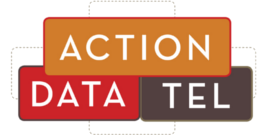3 Simple Ways to Better Secure Your Patient Data and Client Data

3 Simple ways to Better Secure your Patient Data and Client Data
 As a medical professional, you understand all too well the importance of patient confidentiality. The HIPAA and HITECH rules only make protecting your patient’s personal information more critical. Nothing should stand in the way of keeping secure your patient data.
As a medical professional, you understand all too well the importance of patient confidentiality. The HIPAA and HITECH rules only make protecting your patient’s personal information more critical. Nothing should stand in the way of keeping secure your patient data.
Here are three simple changes that every medical or financial office can make to help keep your patient’s or client’s data more secure:
Most successful healthcare practices enable a ‘Culture of Compliance’. This is done by making HIPAA training and PHI awareness a regular part of your staff’s routine.
Providing an annual HIPAA training session is the absolute bare minimum. More can be done to keep staff thinking about compliance, without much effort. Enable quarterly HIPAA quizzes, pose a HIPAA question of the week, or share a current HIPAA-related or PHI-related news story in your weekly staff meeting.
You’ve seen the movies where the ER nurse leaves her station and the villain leans over the counter to find the room number of a patient, right?Besides being potentially dangerous, that’s a huge HIPAA violation. All computers should be ‘locked’ before a staff member walks away from them. Additionally, enable the ‘automatic lock’ feature so the workstation ‘locks’ after a prescribed time of inactivity, requiring a password for login.
Please, please tell me you aren’t sharing usernames and passwords in your office! Every staff member should have an individual username and password for the office computer network.Staff members should never share a username. Passwords should never be shared with anyone or stored in a silly place, such as attached to the workstation monitor. These Password procedures should be clearly outlined in a written Password Policy, part of your office’s working Policies & Procedures.
